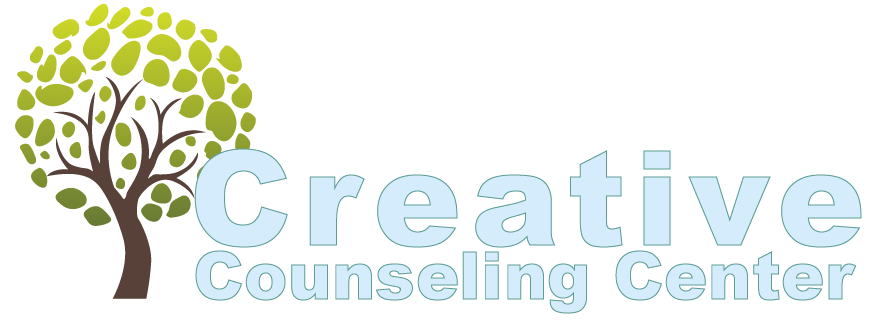Adolescent Counseling | Does Your Teen Need Therapy? Or is Your Teen Just Being a Teen?
Adolescence is a period of growth, a fight for independence, and an emotional roller coaster – all wrapped into one. During pubescence, our brains are still maturing, hormones are out of control, and we are vulnerable to manipulation and sensitive to tragedy. Even one seemingly small thing gone awry can feel like the end of the world and lead to eating disorders, serious depression, oppositional behavior and/or drug and alcohol abuse. These destructive coping mechanisms inhibit the healthy development of your child on a social, physical and mental level.
We all know that teens are rarely easy to handle due to their rebellious, self-centered and occasionally moody attitudes. Unfortunately, the normality of these behaviors can make it difficult to distinguish between your “typical teen” and a young adult in need of adolescent counseling. Below you will find tips on how to determine if your child would benefit from teenage counseling services:
Questions to Ask
Does your teen show signs of behavioral change, excessive mood swings, or outbursts of any kind?
It’s important to take the time to observe your child’s habits and keep an eye on key behaviors. Personal hygiene is a big cue. If your teen is reluctant to shower, wearing the same clothes over and over, or spends excessive time in bed you may want to consider teenage counseling services. Moodiness in teens is normal, but look for extreme anxiety, such as worrying all the time at the expense of their sleep (insomnia) and studies. Anti-social tendencies and isolation can also indicate serious underlying issues. In addition, think about your family history – if you have relatives who live with mental health problems, then it is more likely your child is suffering from a similar disorder.
These behavioral changes can inhibit your child’s healthy development and need to be taken seriously.
To what degree are these behavioral changes?
Humans are emotional beings, and it’s normal to experience depressive moments in life. The degree of dysfunction, however, is important in determining your teen’s psychological needs. If your teen seems goes to bed at a normal hour, is performing well in school, and is actively social, then you’re probably just dealing with the normal adolescent roller coaster. On the other hand, if he or she complains about physical pain, such as headaches, achy joints or other small annoyances on a regular basis, begins ignoring his or her friends, or shows loss of enjoyment in hobbies that he or she once loved, they could be silently crying out for help. One key here is that your child may insist everything is “fine” when, really, they are freaked out – insecure! – neurotic and emotional. Sadness alone cannot be a psychiatric diagnosis for depression, but a combination of the behaviors mentioned above, the degree of dysfunction, and the regularity of certain manners will assist you in determining your child’s demand for adolescent counseling services.
Was there a specific stressor or event that occurred before the behavioral switch?
Now that you have observed your teenager’s internal emotions and external habits, it’s time to consider environmental and situational influence. For example, a death in the family, bullying in school, or divorce may cause your child extreme stress that is slowly eroding the fragile walls of their maturing mind. Another concept to reflect upon is if your teen is already on ADHD medication or is typically anxious, because added tension can magnify these symptoms. A good therapist can determine what is going on by using proven strategies and techniques that are meant to teach your child how to cope with various emotions. Teenage counseling services may provide a non-judgmental space for your adolescent to open up, be empowered with confidence, and learn to adapt to stressful situations in the future. All of this can help relieve some of the symptoms you, as a parent, are concerned about.
Are they attempting to self-medicate?
A topic you may have to do some digging around and evaluation to determine is substance abuse. Drugs and alcohol are becoming more and more widespread at younger and younger ages, providing teens with a superficial way to indirectly and ineffectively cope with personal problems. We all know that the overuse of such substances may have negative health effects on a young adult’s brain function and overall physical health. More importantly, though, addiction is real. It is a real problem, it can run your child’s life and put false thoughts into his or her head. Small addictions that barely raise a red flag are oftentimes gateways to bigger ones, and people who are affected by addiction can lose daily function, social interaction, and become out of touch with reality. All of this is detrimental to your teen’s future goals. Adolescent counseling may be one way for your teen to recover the pieces of their selves, bit by bit.
Are you inflicting indirect pain onto your teen?
Lastly, let us touch on a more difficult subject where being completely honest is of the upmost importance. As a loving parent, the last thing you want to do is be the direct cause of pain or stress on your child. But sometimes it occurs unintentionally. Think deeply about this. Are you hurting your teen because you’re preoccupied with work or play, pulling them into the thick of your arguments, or hitting them with the embers of your irritation fire? If you are reluctantly nodding your head, then you should consider adolescent counseling and attempt to be more mindful of these situations on a daily basis. Try and make your child’s needs a focus for a little while and put forth your best effort to set aside personal issues. In the long run, counseling services combined with an increased awareness of your behavior may be enough to nudge your child on the path for a fulfilling future.
Hopefully you are better equipped to determine whether your teen is expressing typical adolescent behaviors or silently calling out for help. Ultimately, the decision to seek teenage counseling services is your call, but it can be very beneficial in relieving stress from you and your teenager’s life. Teenagers are vulnerable, and the decisions made during this most critical timeframe could very well shape your child’s quality of life now and in the future.
P.S. Choosing a good therapist for your adolescent can be difficult. Check out our previous blog post, How to Find a Therapist for Your Child and learn more.
Contact Creative Counseling Center
If you think your teen is a candidate for adolescent counseling services, we would be happy to discuss your options and point you in the right direction. We are happy to offer a free consultation to help you determine if teenage counseling services are appropriate for your child. Just complete the brief form below and we’ll connect you with the counselor we feel is best equipped to guide you through this process.
Contact Us
We will get back to you as soon as possible.
Please try again later.

ABOUT THE AUTHOR
Teri Karjala is a Licensed Professional Counselor & Marriage and Family Therapist. She is the founder and Executive Director of Creative Counseling Center, LLC. Working in the field since 1999, Teri and her team of therapists specializes in counseling for those who have experienced trauma. They work with children as young as age 2, as well as teens and adolescents, adults, seniors, families, and couples.
REQUEST A FREE CONSULTATION
If you have questions about counseling, would like to find out if counseling could help you or a loved one, or are interested in learning more about our services, just complete the brief form below to request a Free Phone Consultation. A member of our team will contact you shortly. After a brief conversation, we'll determine together whether our practice is right for you and which therapist may be best suited for your specific circumstance.
Finding the right therapist, one you click with, is less about the therapist's experience and qualifications and more about the therapist's personality. So let's talk. Let us match you with a therapist you have a high likelihood of clicking with.
Fields marked with an * are required.
Contact Us
We will get back to you as soon as possible.
Please try again later.
GET SOCIAL WITH US
CONNECT WITH US
PHONE
EMAIL US
ADDRESS
6021 South Syracuse Way, Suite #216
Greenwood Village, CO 80111
OFFICE HOURS
Monday-Thursday: 8:30am-8pm
Friday: 12pm-5pm
Saturday: 12pm-4pm



